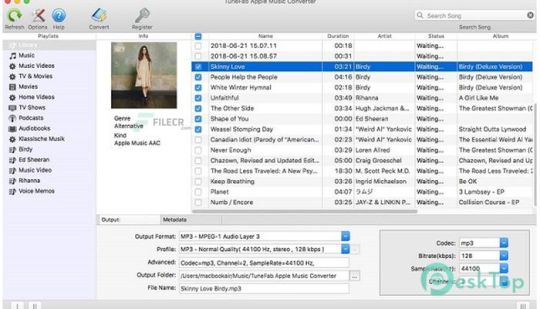Don't wanna be here? Send us removal request.
Text
Converting Audio Files to Sheet Music

There are several programs that attempt to create sheet music from audio files but as of yet none have been able pull it off effectively. I remember several years back I used one program called "Melodyne" which was able to convert audio files into music notation. However, anything that was not strictly monophonic would not be rendered correctly. In music "monophony" refers to a single melody that is played without a harmonic accompaniment. A good example of a monophonic sound is a tin whistle. That said, Melodyne was not actually created as means to convert audio files into sheet music. It was designed more for the purpose of remixing and reshaping melodies. I found that it worked very with female vocals as you could take a vocal sample, shift and stretch the notes around and make it so that the original melody is practically unrecognizable.
The reason why it is so difficult for these apple music converter programs to make this conversion is because audio files are very complex. A standard audio/mp3 file will contain several instruments playing at the same time, all with different pitch, volume and duration. It would be practically impossible for a piece of software to isolate or recognise an individual sound within this harmonic spectrum.
If you want to get sheet music for a particular song a better solution might be to try and find a MIDI version of the song. There are many websites where you can download MIDI files for free. However, from my experience many of the free MIDI files available for download have not been transcribed correctly and the last thing you want to do when you are learning a piece of music is to learn in incorrectly. It is often better to purchase MIDI files from a reputed vendor.
You may be wandering what MIDI is. General MIDI (GM) is a file format for reproducing a particular musical arrangement. Unlike an audio file a MIDI file does not contain any sounds as such. The file is simply a series of instructions, which are played back using a MIDI sequencer, typically involving a computer and some MIDI sequencing software. The files contain information about a songs title, copyright information, pitch, duration and even effects. One of the advantages of MIDI files over audio files is that MIDI files are much smaller in size. Additionally, you can edit and rearrange the notes using a MIDI sequencer. There are numerous MIDI sequencers or musical notation software available such as finale, Sibelius and muse score to name just a few. You can use these programs to convert the MIDI files into sheet music and even print them out. MIDI files are also commonly used for karaoke.
The bottom line is you can either look for a MIDI version of the song you would like to learn or go through the painstaking task of sitting down and manually transcribing the song note for note, which can also be good way to learn.
For more Information: https://www.audio-conver.com/
1 note
·
View note